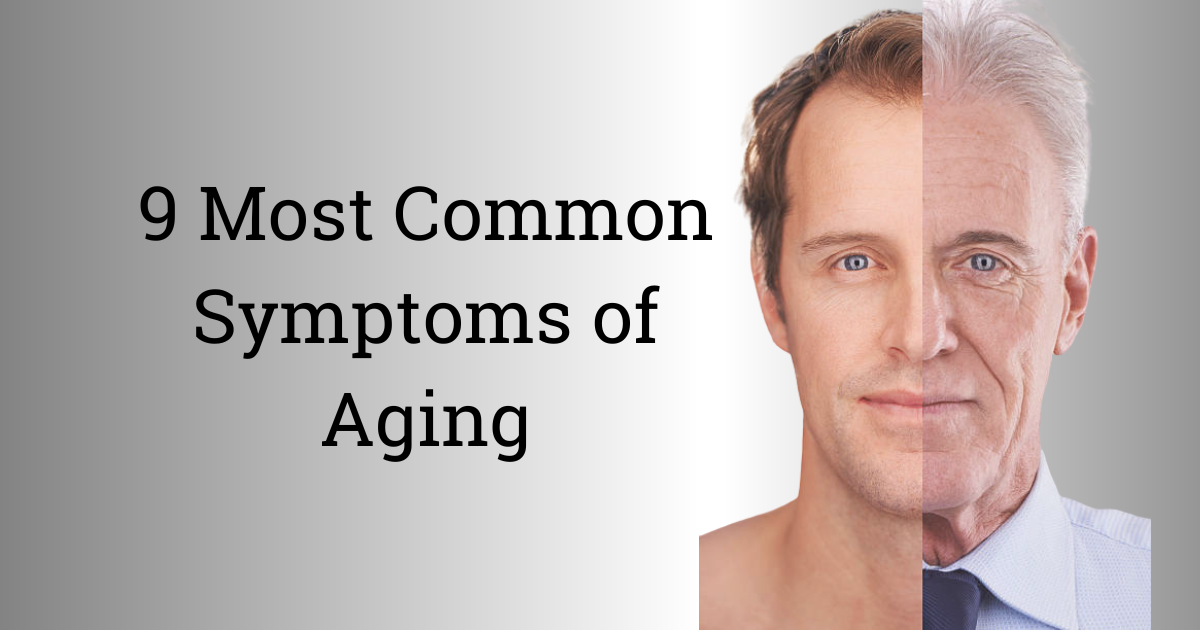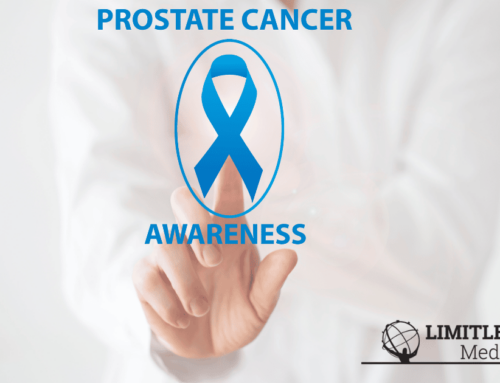If you’re like most people, the idea of aging can be scary. The idea of getting older is typically associated with declines physically and mentally, not to mention an increased risk of chronic disease.
However, if you put some effort into improving your lifestyle, healthy aging can be achievable.
In this article, we’ll show you some of the most common symptoms of male aging, including a male aging timeline showing you what bodily changes you can expect at certain ages in your life.
Let’s begin.
How Men’s Bodies Change With Age
Have you ever wondered what’s normal when it comes to the aging process?
You know that you’re aging when you start to notice wrinkles and maybe even a bit of gray hair. But, what about the other aspects of your health? While there’s a lot of information available about aging, most people don’t know enough.
Keep reading to learn what changes you should expect both physically and mentally as you get older.
1. Your Heart Begins Working Harder
The main change that happens as you age isn’t something you see with the naked eye. It’s happening internally in your cardiovascular system.
As you age, your blood vessels and arteries will begin stiffening which causes your heart to work harder. However, it’s important to note that your heart adapts to these changes to ensure your blood pumps properly through your arteries and veins.
Your resting heart rate will stay about the same over time. But, when you exercise or do any strenuous activity, your heart rate won’t increase as much as it used to. The changes in your heart increase the risk of hypertension (high blood pressure) and other cardiovascular conditions. Improving your cardiovascular function should be a top priority as you get older.
2. Weaker Bones & Muscles
One of the first things you’ll notice as you age is the physical change in your muscles and bones. Your bones begin losing density. This makes them weaker and more susceptible to injuries such as fractures or breaks.
Your muscles also typically lose strength over time. Plus, they’ll even weaken in terms of flexibility and endurance. These indirectly impact your balance, coordination, and stability. One way to slow down muscle loss is through regular exercise. Supplementing with testosterone is another common practice for increasing bone density and maintaining muscle mass.
3. Bathroom Challenges
As you age, there are a few internal changes that take place that impact your ability to use the bathroom.
Bladder
As you get older, the bladder becomes less elastic which results in the need to urinate more frequently. Your pelvic floor muscles and weakened bladder muscles can also make it challenging to empty your bladder completely and may even cause you to lose some bladder control.
Prostate
For men, the prostate typically gets bigger as you age. This can make it difficult to start urination and for your bladder to completely empty. This leads to more trips to the bathroom throughout the day and night.
Digestion
Structural changes also take place in the large intestine as you age. This can result in increased constipation as you get older. However, your digestion is typically impacted more by your lifestyle and diet choices than your age.
4. Your Thinking & Memory Skills Decline
While it’s easy to see certain physical changes over time, some aren’t so easy to spot like your mental changes. As you get older, your brain goes through several changes that can have a minor impact on your thinking and memory skills. For instance, multitasking may become more difficult. And, you may find that it’s easier to forget familiar names or words.
5. It’s Harder to See & Hear
Your eyes and ears go through changes through the aging process. By middle age, your eyes start to weaken. The most telling sign is that it’s hard to focus on objects that are close up. You may become a bit more sensitive to light. Some people even find their vision slightly clouded or blurry caused by cataracts.
Hearing loss is another common symptom of aging in men and women. For example, you may find it challenging to follow a conversation in a loud, crowded room. One symptom you won’t typically notice is that you’ll have a harder time hearing high frequencies.
6. Your Teeth Look and Feel Different
Another physical change you’ll go through as you age has to do with your teeth. As you get older, it’s common to experience tooth loss. Plus, your gums may begin pulling back from your teeth. If you’re on medication, you may be impacted by dry mouth more, which can lead to an increased risk of infection or tooth decay.
7. Your Skin Changes
One symptom of aging that’s easy to spot is skin changes. As you age, wrinkles tend to form quite easily. This is because your skin gets thinner, more fragile, and less elastic. Plus, just below your skin, fatty tissue decreases.
You may find that you bruise more easily as you age due to these skin changes. Natural oils found within your skin decrease in production which makes the skin drier. Age spots and small growths like skin tags become more common as well.
8. It’s Easier to Gain Weight
Your body burns calories differently with age due to changes in your metabolism. As you get older, your metabolism naturally slows down. This means if you continue eating and exercising the same amount every year, your body will typically gain weight.
This is because you’re putting in the same amount of calories, but your body isn’t burning off calories as fast as it used to. To maintain a healthy weight as you age, it’s important to eat right and stay active.
9. Sexual Performance Declines
With age, sexual performance also changes. For men, testosterone levels naturally drop over time which impacts libido. You may find that your desire for sexual activity lowers. Also, it may become difficult to get an erection.
While there may be challenges with sex drive as you get older, your libido is also highly dependent on lifestyle factors including poor eating habits, stress levels, and vitamin and supplement intake.
Male Aging Timeline
Curious how aging affects your body at different ages? Here’s a male aging timeline that shows some of the most common male body changes at 30, 40, 50, and 60.
Male Body Changes at 30
Once you hit your 30s, you’ll begin noticing some changes in your body that you didn’t experience in your 20s. While the 30s are still considered early adulthood, there are still some common aging symptoms that take place including:
- Decreased flexibility
- Increased muscle soreness
- Longer muscle recovery times
- Decreased strength
- Aerobic capacity declines
- Increased weight gain
Male Body Changes at 40
Once you hit your 40s, you’ll see some more physical changes take place as you enter middle age. For those considering having kids, this is a critical time to focus on improving sexual health as sperm count and quality begin dropping dramatically. Here are some common changes that take place in men in their 40s:
- Decreased vision up close i.e. reading books
- Increased risk of acute injuries
- Lower sex drive
- Decrease in sperm quality and quantity
Male Body Changes at 50
As you hit your 50s, you’ll begin seeing more changes take place, particularly when it comes to movement. Here are some common male body changes at 50:
- Muscle limitation
- Reduced physical strength
- Muscle loss
- Increased risk of arthritis
- Decreased water in the body
- Lower testosterone levels
- Lower libido
- Minor memory loss
Male Body Changes at 60
Once you’re in your 60s, you’re considered to be in the latter stages of life which means more changes in your body and mind:
- Hearing loss
- Slower metabolism
- Increased weight gain
- Dry or itchy skin
- Increased wrinkles, age spots, bruises, creases
- Increased risk of infections
- Increased risk of heart conditions
- Decreased sweat production
- Minor short-term memory loss
- Reduced vision
- Increased chance of cataracts
- Weak muscles and joints
- Reduced sleep quality
- Increased blood pressure






